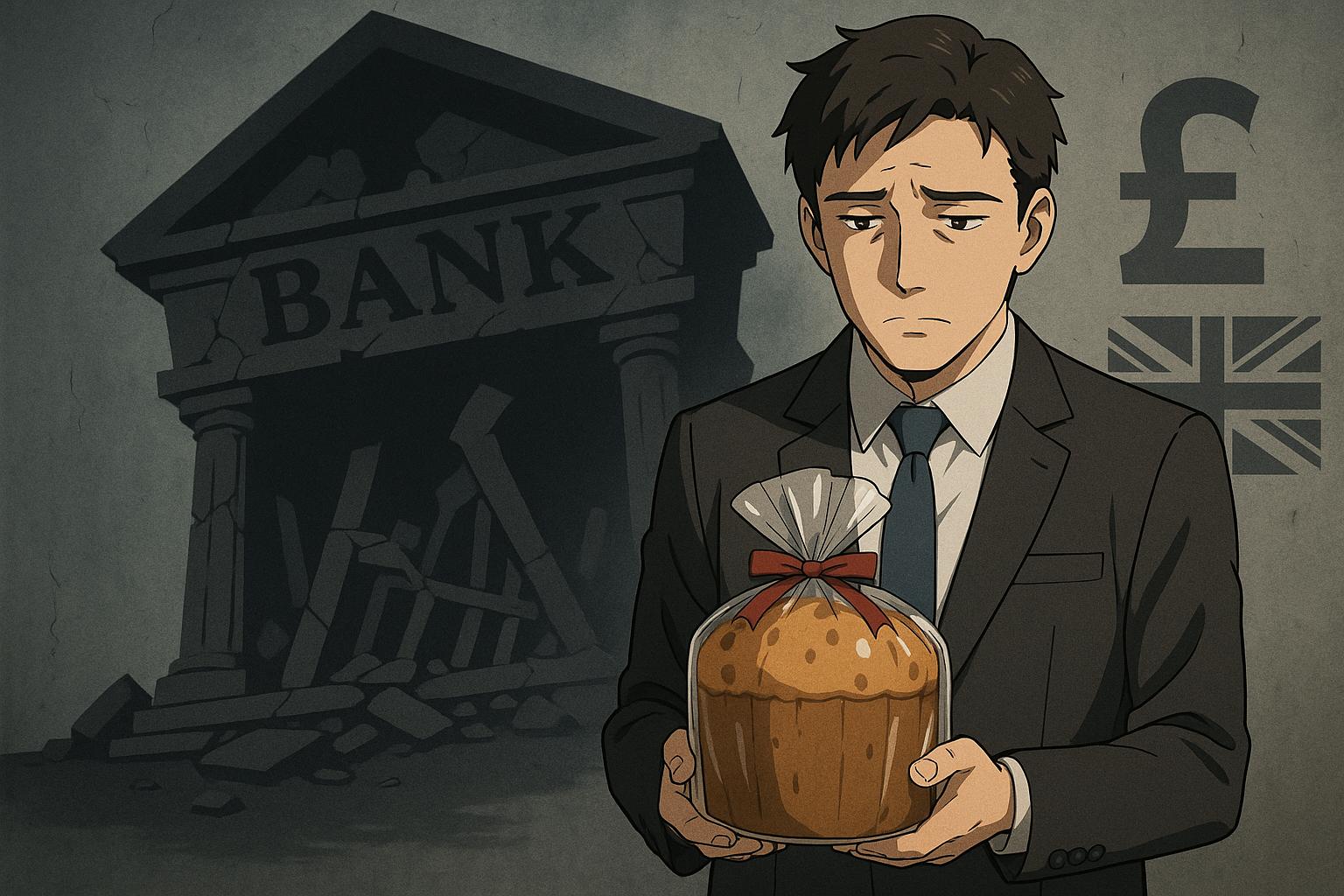One Saturday just before Christmas in 2007, Alistair Darling, then Chancellor of the Exchequer, found himself startlingly unprepared for a visit from Fred Goodwin, the head of the Royal Bank of Scotland (RBS). Goodwin arrived bearing a gift-wrapped panettone but, as history would reveal, his intentions were far from festive. He sought urgent help to avert a looming catastrophe for his institution. This moment marked the beginning of a crisis that would culminate in a £45 billion taxpayer bailout, entirely reshaping the UK's banking landscape.
The recent death of Darling in 2023 has prompted reflections on this tumultuous period. Goodwin's legacy stands in stark contrast; living a quieter life funded by a £600,000-a-year pension, he remains a figure of considerable notoriety. After 17 long years, RBS—now rebranded as NatWest—has finally emerged from the grip of state ownership, marking a significant turning point in British finance. According to Sir Howard Davies, former chairman of NatWest, the completion of this transition bears a certain symbolic weight. He stated, "It won't make a huge amount of difference in itself. It is in a territory somewhere between practical and symbolic."
The tale of RBS is one underscored by themes of arrogance and hubris, akin to elements of tragedy where powerful figures believed themselves untouchable. Paul Thwaite, the current chief executive, reflects on the events that shaped his understanding of banking, expressing gratitude for the public’s support during the bailout and acknowledging the monumental impact banks have on communities and economies. This mindset, however, stands in stark contrast to that of Goodwin, whose ambitious drive ultimately led RBS down an unsustainable path, resulting in debt far beyond comprehension.
The NatWest of 2025 is remarkably different from the RBS of the crisis era. Once deemed the largest bank globally, RBS had become a behemoth housing a £2.2 trillion balance sheet and operating in 54 countries. Contrastingly, NatWest now operates on a much more prudent financial model, with a balance sheet reduced to £708 billion. In 2024, it celebrated a profit of £6.2 billion, reversing the £40.7 billion loss recorded in 2008, a peak of financial turmoil. This turnaround has inspired ambitions for further growth, albeit tempered with lessons learned from the past.
While taxpayers endured a loss exceeding £10 billion from the bailout, the damage extended far beyond monetary value. Many entrepreneurs and businesses suffered due to the aggressive practices of RBS's Global Restructuring Group, designed ostensibly to assist struggling companies but which instead often stripped them of vital resources. Ross McEwan, who helmed the bank from 2013 to 2019, described the heartbreaking toll on investors, particularly those whose fates hinged on catastrophic capital raises.
The roots of RBS's downfall trace back to a pivotal moment in 2000, when it executed a £21 billion takeover of NatWest, a move that forced it into a series of high-stakes gambles which ultimately risked its very existence. Goodwin's insatiable appetite for expansion culminated in the poorly timed acquisition of ABN Amro for £49 billion, an endeavour that would expose the bank to perilous subprime mortgage assets.
In the aftermath of the global financial crisis which erupted in 2008, the UK government was compelled to intervene, taking a controlling stake in RBS to stave off economic collapse. Goodwin's resignation as chief executive was emblematic of a broader crisis of confidence, leading to the installation of Stephen Hester, who established a framework for recovery and redefined the bank’s focus.
Despite several changes in leadership, including the stewardship of Dame Alison Rose, success in reclaiming government ownership proved elusive. The exit of the government in 2025 now appears to signal the close of a chapter characterised by financial reform and government intervention. The final exit incurred a £10.5 billion loss, contrasting sharply with strategies employed in the United States which saw quicker recoveries with less taxpayer pain.
As NatWest now navigates the post-bailout landscape, executives like Thwaite underscore a commitment to stringent fiscal discipline. He intimated ambitions to expand strategically, hinting at interests in acquisitions, such as a recent failed bid for Santander’s UK retail operation. Yet, the shadow of the past remains long. The bank must balance growth aspirations against heightened regulatory scrutiny and public expectation—an ongoing legacy of the crisis that reshaped the UK banking sector awash in the lessons of the past.
Source: Noah Wire Services
